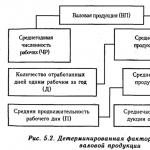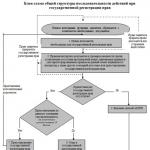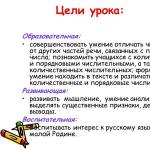Obtaining information about the needs and market conditions. Informing about the status of the personal account of the insured person, who receives information about the status
Monitoring, regulation and management of industrial textile production facilities requires, first of all, obtaining objective initial information about the state and progress of technological processes occurring in automation facilities. In the process of measuring various physical quantities, it is necessary to determine the quantitative value using appropriate technical devices called means of obtaining measurement information (sensors). These devices are an integral part of almost any industrial automation system.
Given the wide variety of measured technological parameters, it is difficult to count on the successful development of sensors without their systematization and unification. Research carried out in the 70s of the twentieth century by the Institute of Management Problems to estimate the size of the area of such information made it possible to create an inventory of quantities and parameters to be measured.
Cadastre– a systematized body of information compiled periodically or through continuous observations of relevant objects. It combines physical quantities that determine the state of technological control objects of various industries. These include quantities of space and time, mechanical, electrical and magnetic, acoustic, light, and also relative. The cadastre determines the prospects for the development of the range of measuring instruments - technological process sensors.
In Fig. 2.1 shows the structure of the inventory of measured quantities. These are mainly quantities used for control and automation of industrial facilities. The given classification and list of measured and controlled quantities of GSP are quite arbitrary: they reflect mainly the existing tradition, but, on the other hand, they limit the area of distribution, determine the nomenclature of all TSA included in its composition, and serve to outline the range of objects control and management currently covered by SHGs.
Basic concepts in metrology
Metrology is the science of measurements, methods and means of ensuring their unity and methods of achieving the required accuracy. It serves as the theoretical basis of measurement technology.
By measuring They call finding the value of a physical quantity experimentally using special technical means.
To solve problems of automatic control and regulation of technological parameters of textile production, the reliability of the value of the measured value of the controlled parameter is essential. Thus, measurement is characterized, first of all, by obtaining quantitative information about the quantity being measured, or the so-called measurement information.
A distinctive feature of measurement is that this process necessarily involves one or another simple or complex physical experiment. In some cases, quantitative information about the measured value cannot be obtained only through theoretical calculations. Even if the values of individual quantities are obtained by calculation, then the calculation formulas used in these cases must necessarily contain the value of other quantities determined experimentally.
To carry out a measurement, one naturally needs measuring instruments with which the measuring process is carried out, as well as a method or method of measurement characterized by a physical phenomenon that is used in the measurement depending on the measuring instruments used.
Thus, the concept of “measurement” includes the following main elements: the measurement condition, units of physical quantities, measuring instruments, measurement methods, an observer or any technical devices for perceiving and using the value of the measured quantity, the result of the measurement.
Measured quantities. When considering this issue, we will focus only on the measurement of deterministic quantities, without touching on the measurement of statistical characteristics of random processes.
There are quantities that are continuous in value and discrete. The first are characterized by the fact that within a given measurement range they can have an infinite number of values. A quantity that is discrete in value in a given measurement range has a limited number of values (levels), and any subsequent value differs from the previous one by the same value.
In measuring technology, the term “analog quantity” is also used, i.e. a quantity that is similar to another quantity, or, in other words, displays another quantity. If the first (main) value changes continuously, then the analog value will also change continuously. For this reason, devices with a pointer moving along a scale are called analog, and devices that provide measurement information in discrete form in the form of numbers are called digital.
Measurement conditions. When measuring, it is necessary to take into account the mutual influence of the environment and the measuring instruments with which the measurement information is obtained. The introduction of measuring instruments into the medium should not change its properties, otherwise false or distorted information to one degree or another will be obtained. At the same time, it should be emphasized that the interaction of the environment and measuring instruments is necessary, since only thanks to this the transmission and reception of measuring information by the device occurs. The influence of measurement conditions must be taken into account when choosing a method and processing measurement results.
Units of physical quantities. In measurements, the most important role belongs to units of physical quantities that have such dimensions that, by definition, are assigned the numerical value “1”. For comparison and unambiguous interpretation of measurement results, a system of units has been established by law. Basic units are reproduced in the form of standards, i.e., such measuring instruments that allow the reproducible size of the unit to be transmitted with the greatest achieved accuracy to other measuring instruments used in widespread practice.
Measurement tools and methods. Technical means used in measurements and having standardized metrological properties are called measuring instruments. Measuring instruments serve as the basis of measuring equipment.
Methods for carrying out measurements depend on the methods of obtaining measurement information and the patterns underlying the measurements, as well as on many other factors: the type of the measured quantity, its value, measurement conditions, required accuracy, etc. In fact, the measurement method is determined by the principle of comparing the measured quantity with unit and physical laws underlying the measurement.
Measurement result. For a number of reasons, any measuring instrument cannot give an absolutely accurate value of the measured value. Therefore, the true value of a quantity must be considered only as a value that ideally reflects, in qualitative and quantitative terms, the corresponding property of a given physical object. For practical use, the value of a quantity is accepted, determined experimentally using measuring instruments to such an extent that for a specific purpose it can be taken instead of the true value. Thus, one of the cardinal tasks in measurements is the assessment of measurement errors.
PROCEDURE FOR PROVIDING INFORMATION
about the health status of patients undergoing inpatient treatment at the Federal State Budgetary Institution “Federal Center for Cardiovascular Surgery” of the Ministry of Health of Russia in Krasnoyarsk (hereinafter referred to as the Center) to relatives and friends of patients.
1. Providing information about the health status of a patient undergoing inpatient treatment at the Center is carried out only to persons indicated by the patient in the form for permission to transfer information constituting medical confidentiality. This form is filled out by the patient when registering for hospitalization in the emergency department and placed in the medical history. The admission department nurse is responsible for filling out the form and placing it in the medical history.
2. Information about the patient’s health status can be provided to persons to whom the patient has given consent to receive information by the attending physician, operating surgeon, head of the department, resuscitator or head of the intensive care unit when the patient is in the intensive care unit.
3. Information about the patient can be obtained in a personal conversation with a doctor or with the head of the department, or by telephone. If the patient indicates a specific person to receive information, the transfer method is only face-to-face - after providing identification documents and verifying their data with those specified by the patient in the consent to transfer the data.
4. On weekdays, information about the patient’s health status is provided by the attending physician or operating surgeon during a personal meeting or by calling the resident’s office from 2:00 pm to 4:00 pm (including information about patients in the anesthesiology and intensive care unit). Information about the condition of patients transferred to the intensive care unit after 16.00 is provided that day by the resuscitator on duty or the pediatric resuscitator on duty from 20.00 to 22.00 by phone number of the resident’s office or medical post, or during a face-to-face meeting.
5. On weekends and holidays, information about the health status of patients being treated in the department of anesthesiology and intensive care is provided by the on-duty resuscitator or on-duty pediatric resuscitator from 10.00 to 12.00 and from 20.00 to 22.00 by phone number of the resident’s office or medical post, or during a face-to-face meeting.
6. Information about the patient’s health status is received from the head of the department either directly by contacting the telephone number of the department head’s office during working hours, or through the attending physician, who is obliged to inform the latter about the need to clarify the patient’s health status. The head of the department must ensure that information is provided by telephone or in person within 2 working days.
7. Other employees of the Center, other than the persons specified in clause 2 of this Procedure, are prohibited from providing any information about the patient’s condition. Information about the received request and the patient’s condition must be passed on to the patient’s attending physician or operating surgeon; if the patient is in the intensive care unit, to the resuscitator.
The concept and types of environmental rights of citizens.
Under environmental human rights are understood individual rights recognized and enshrined in legislation, ensuring the satisfaction of various human needs when interacting with nature.
Fundamental rights are enshrined in the Constitution:
1. the right to a favorable environment,
2. the right to reliable information about her condition
3. the right to compensation for damage caused to his health or property by an environmental violation
The Federal Law “On Environmental Protection” partially reproduces constitutional environmental rights, but in a deteriorated version. According to Art. 11 analysis of environmental rights enshrined in legislation, i.e. human rights to nature or related to nature, allows us to combine them into the following groups:
Rights aimed at meeting human needs at the expense of natural resources. These include right to a healthy environment And environmental rights(water use, subsoil use, forestry).
Rights aimed at protecting health from adverse environmental influences. the right to health protection (Article 41), on work in conditions that meet safety requirements(Article 37), and also on radiation safety
Rights that serve as a means of ensuring compliance and protection of the rights to a favorable environment and protection of health from the adverse effects of the environment.
ü the right to reliable information about the state of the environment,
ü for compensation for damage caused to human health or property by an environmental violation,
ü to protect the environment from negative impacts caused by economic and other activities, natural and man-made emergencies, to compensate for damage to the environment
ü create public associations, foundations and other non-profit organizations carrying out activities in the field of environmental protection;
ü take part in meetings, rallies, demonstrations, processions and picketing, collecting signatures for petitions, referendums on environmental issues
The right to apply to obtain information about the state of the environment.
Citizens own the right to send appeals to state authorities of the Russian Federation, state authorities of constituent entities of the Russian Federation, local governments, other organizations and officials to receive timely, complete and reliable information about the state of the environment in their places of residence, measures to protect it.
Information – any information, regardless of the form of its presentation.
The object of relations arising in the course of realizing the right of citizens to environmental information is the environmental information, which may contain information:
About the state of the earth, soil, subsoil, water, atmospheric air, flora and fauna, natural complexes;
About an environmental threat or risk to human health and life; about chemical, physical and biological impacts on the state and objects of the environment and their sources;
About activities that negatively affect or may affect natural objects and people;
On measures to protect the environment, including legal, administrative and other;
On the activities of government bodies, legal entities and citizen entrepreneurs in the field of natural resource management, environmental management, environmental protection, ensuring compliance and protection of environmental rights and legitimate interests of individuals and legal entities, if the need for such activities is established by the legislation of the Russian Federation.
The guarantees of the rights of citizens are the timeliness of provision of environmental information by official bodies, its reliability and completeness.
So, reliable recognized as non-distorted environmentally significant information that is or should be available to specially authorized state bodies in the field of environmental management and environmental protection and other subjects of law within their competence.
Full can be considered information that is transferred to interested parties to the extent that a state body, local government body or other owner (owner) of information resources can or should have it.
Timely Information transmitted to the person who applied for it may be recognized as soon as possible from the moment of the request and necessarily before the expiration of the period specified in the legislation, if any. In case the authorities do not respond within 1 month When citizens request information about the state of the environment in their places of residence, citizens in such a situation have the right to file a complaint with a higher authority or court.
The Code of Administrative Offenses of the Russian Federation (Article 8.5) provides for administrative liability for “concealing or distorting environmental information.” ( Concealment, deliberate misrepresentation or late reporting complete and reliable information about the state of the environment and natural resources, about sources of pollution of the environment and natural resources or other harmful effects on the environment and natural resources, about the radiation situation, as well as distortion of information about the state of lands, water bodies and other environmental objects persons obliged to provide such information).
The work of organizing operational services begins with the fact that the employee of the operational unit who has received the industry (zone, line of work) for operational services must know how many and what kind of enterprises (institutions, organizations) are located in the serviced territory. Next, the employee begins to analyze the state of the operational situation. In general terms, the content of the operational situation includes the following groups of factors:
geographical;
climatic;
economic;
socio-demographic;
criminogenic;
the presence of operational-search and other forces and means available to the subject of analysis.
This set of characteristics is used mainly by management structures. For the operational staff of law enforcement agencies, as a rule, it is necessary to analyze the operational situation at the serviced facility (group of facilities), territory or line of work. In this regard, the content of the operational situation is significantly narrowed and includes only the following factors:
Socio-economic characteristics;
Crime situation;
The forces and means of an operational law enforcement officer.
As a result of the analysis of the operational situation in a certain territory The employee must receive the following information:
1. According to socio-economic characteristics:
economic potential (number of enterprises, institutions, organizations, direction of their economic activities);
industrial and other connections; entrepreneurial activity of the population;
the situation of socially weakly protected categories of citizens; level of tax collection;
presence and condition of communications, etc.
2. According to the criminal situation:
Structure, level, dynamics and proportion of crime;
The presence and nature of activities of persons of operational interest;
Prevalence of administrative offenses; criminological characteristics of persons committing offenses;
State of preservation of property; conditions conducive to the commission of crimes, etc.;
3. Forces and means of the operational law enforcement agency:
Availability and quality characteristics of confidential employees;
List of subjects with whom the detective interacts and forms of interaction;
Technical equipment of the operational officer, etc.
The study of:
Production technologies, accounting procedures, expenditure, transportation, storage of these funds;
Data regarding financially responsible and other persons with direct access to drugs, the sources of their material security, its correspondence to the income received; lifestyle, connections, criminal records and other materials indicating the probable criminal activities of those being inspected;
Materials from audits of economic activities of enterprises and institutions, complaints about the supply of raw materials and finished products; other documents relating to the production, acquisition, storage, destruction, release and consumption of drugs;
Structures and procedures for the security of enterprises, institutions, organizations and other objects, implementation of access control at them;
The procedure for selecting and placing personnel directly related to drug operations.
Employees of law enforcement agencies during the Operational search activities at drug production and storage sites should be aimed at identifying:
Drug addicts, drug users See the Unified Departmental Dictionary of Terms Used in Assessing the Scale of Drug Distribution and Illicit Consumption. - M.: FSKN, 2006., persons previously convicted of theft of state property and crimes related to drugs, among financially responsible and other persons with access to drugs;
Prescriptions written out for fictitious patients and persons for whom medical use of narcotic drugs is not prescribed;
Cases of replacing drugs in ampoules and other containers with other means;
Facts of misappropriation of drugs due to their fictitious write-off for scientific research or treatment of oncological or other categories of patients;
Forged documents for the destruction of narcotic medicines with expired shelf life and facts of misappropriation of such medicines;
Operational and other information about the appearance of a batch of narcotic drugs in illicit trafficking in the serviced territory and taking measures to establish their quantity, volume, frequency of appearance, features of labeling, packaging, packaging.
Thus, the correct organization of operational work on the indicated facilities for the purpose of carrying out preventive and investigative measures cannot be ensured without a thorough study of the features of their production activities, knowledge of the contingent of workers who are entrusted with operations with narcotic drugs, the state of preservation of state property at a particular enterprise.
In addition to the above enterprises involved in the production, storage, distribution and use of narcotic drugs, law enforcement units provide operational services to other facilities and territories, which include:
Joint-stock companies, agro-industrial complexes engaged in the cultivation of hemp;
Settlements where illegal planting of prohibited crops has been repeatedly recorded;
Settlements located near tracts of wild hemp;
Areas adjacent to transport communications located near places of cultivation or wild growth of narcotic plants;
Processing facilities See the Unified Departmental Dictionary of Terms Used in Assessing the Extent of Drug Distribution and Illicit Use. - M.: FSKN, 2006., storage, production of drug-containing raw materials.
Their operational service is aimed at identifying facts of illegal crops of poppy and hemp, identifying persons arriving in a given area for the purpose of stealing drug-containing plants from sown plantations or procuring wild hemp for further artisanal drug production, buyers of raw materials and artisanal drugs.
Operational maintenance of territories and facilities is ensured by a combination of the following organizational measures:
Study, analysis, assessment of the operational situation in the assigned territory or its individual parts;
Determination of operational maintenance modes for specific objects and territories;
Organization of a system for collecting information of operational interest;
Planning operational search and other activities to prevent and solve drug-related crimes.
A comprehensive analysis and assessment of the current situation allows law enforcement officers to make adequate decisions for interaction between various services and units.
Operational maintenance of objects and territories is impossible without planning and implementing a whole complex of secret activities, the basis of which is the work of selecting and placing a secret apparatus.
Positive results in the fight against drug trafficking are achieved where they skillfully organize the work of selecting and placing secret sources of information. This contributes to the creation of a stable secret apparatus that can provide effective assistance in the fight against drug crime.
Many citizens do not know what rights they have in the area of health protection. Characteristics of the fundamental rights of citizens. The right view on the safety of information not subject to disclosure. The patient’s right to information about his health and treatment methods is enshrined in the legislation of the Russian Federation.
In legal terms, the patient’s right to information includes:
- the duty of government bodies to create conditions for people so that they have the opportunity to familiarize themselves with documents relating to civil rights and freedoms;
- the right to freely use legal methods of collecting, transmitting and disseminating information;
- the right to know the state of the environment and, in the event of adverse health effects, to receive compensation for damage;
- responsibility of civil servants in case of concealment of factors that may pose a threat to human health.
If we consider the rights and obligations in the field of information about personal data, we can highlight the following:
- free receipt of information that affects information about another person only if this is part of the duties;
- obtaining information related to the processing of his personal data;
- clarification of a person’s personal data in cases where the information is out of date or is not provided in full.
Legislative acts that operate in the field of healthcare relations establish the following rights of people:
- the patient's right to information about health status;
- communicate information about your health status to other selected individuals;
- have authorized access to information about your health that is available to a medical institution;
- obtaining accurate information necessary to take measures to maintain health.
The last point concerns general standards of possible danger from work, the environment in a populated area, and food safety.
 Information about permission to process your personal data must be provided only if there is such a request from appropriate persons having such authority.
Information about permission to process your personal data must be provided only if there is such a request from appropriate persons having such authority.
This document contains:
- a link to an identification document;
- information that confirms the legality and need to have access to personal data;
- signature and date of filling out the document.
A medical institution or insurance company may request permission to process personal data, for example, to draw up and enter into force a health insurance policy. All issues related to obtaining personal information about citizens are regulated by articles of the Law of the Russian Federation “On Personal Data”.
Citizens who go to the hospital have the right to receive information about their health status. Also, such information can be obtained by the attending physician, a representative of the insurer and the hospital. If a patient wants to exercise his right independently, he needs to know what options he has to do so.
Information rights include:
- familiarization with medical papers, extracts, certificates, tests that contain information about his health;
- consulting specialists;
- obtaining documents containing health information.
Cases when a doctor must inform a patient about his health:
- the patient chooses a specialist and a hospital;
- the patient's permission to perform the operation is required;
- during treatment and examination.
 According to the established rules, a person who has reached the age of fifteen can receive information. If treatment fails or results in the patient's death, the physician must inform close relatives (eg, husband, wife) about the health condition that led to this outcome.
According to the established rules, a person who has reached the age of fifteen can receive information. If treatment fails or results in the patient's death, the physician must inform close relatives (eg, husband, wife) about the health condition that led to this outcome.
Legislative acts define the following list of responsibilities of a medical institution:
- Informing by a representative of a medical institution about the activities of the organization, specialization, and level of qualifications of employees.
- Provide patients with accurate information about the care that was provided.
- Report what methods and methods were chosen for treatment.
- Inform patients of their right to receive assistance under the terms of their current insurance policy.
- Provide information about medicines, materials, and goods that will ensure a decent level of medical services and proper care.
The patient can also contact a hospital representative to find out the rules and conditions for the effective and safe use of products.
When a citizen is provided with free medical care, hospital staff must report:
- the procedure, rules and amount of services determined by the medical policy;
- a complete list of services that the organization provides;
- types of medical care provided;
- indicators of the quality of services provided to the patient.
These responsibilities are spelled out in the Law of the Russian Federation “On Compulsory Health Insurance” and the Law of the Russian Federation “On Health Protection”.
Insurance companies in the process of informing citizens
The patient must be accompanied and informed by a representative of the insurance company with which the citizen has entered into an agreement.
The law imposes the following obligations on the insurance company:
- inform about all rights and responsibilities when applying to a medical institution;
- provide a list of hospitals that provide assistance under a valid insurance contract in a given locality;
- inform what type of assistance the medical organization provides;
- about violations on the part of the hospital that were identified earlier.
Before concluding an agreement with an insurance company, you must carefully read the list of situations for which the policy is not provided.
When a citizen applies to a medical institution in order to receive paid care, a representative of the organization is obliged to inform him about the following points:

- Availability of the opportunity to receive the required assistance in the required amount.
- List of services that are provided for a fee.
- The procedure for depositing funds for services rendered.
- Conditions, methods, procedure for treatment.
- Information about the medical center personnel (education, qualifications, work experience).
- Medical center opening hours.
- Working hours of specialists who provide paid services.
- Information about the level of his health.
- Information about medications that will be used during treatment.
Information about medications includes: expiration date, description of cases of prohibited use and indications for use. When notifying the patient about his health condition, it is necessary to inform him of the results of the study and diagnosis.
Citizens have the right to contact a medical institution if there are the following grounds:
- the deadlines established by law for the provision of medical care or a specific service were violated;
- emergency assistance was not provided on time;
- documents were requested that were not required by law;
- it was refused to accept documents that, according to legislative norms, must be accepted for the provision of medical care;
- no medical care was provided;
- medical care was of poor quality;
- actions of specialists without compliance with current legislation;
- the patient is dissatisfied with the decision that was made regarding the provision of medical care;
- lack of attention, ethics, morally bad attitude of a specialist from a medical institution;
- requirements to pay for a service that is not included in the list of paid services.
 Applications received from citizens must be registered within one day. If the medical institution is not authorized to respond to the request, it needs to redirect the request to the appropriate authority. The applicant must also be informed about this. If a written application contains questions that can only be answered by other competent authorities, they must be sent copies of the application. The law establishes a twenty-day period for consideration and submission of a response. In cases where additional time is required to study materials or carry out certain actions, a response may be sent thirty days from the date of application. In this case, the applicant must be informed of the need for additional measures.
Applications received from citizens must be registered within one day. If the medical institution is not authorized to respond to the request, it needs to redirect the request to the appropriate authority. The applicant must also be informed about this. If a written application contains questions that can only be answered by other competent authorities, they must be sent copies of the application. The law establishes a twenty-day period for consideration and submission of a response. In cases where additional time is required to study materials or carry out certain actions, a response may be sent thirty days from the date of application. In this case, the applicant must be informed of the need for additional measures.
The application, which can be submitted if there are grounds, must contain the following information:
- introduction, name of the medical institution or personal data of the official;
- personal information about the applicant;
- contact details (phone, email);
- the address to which the written response will be sent;
- description of the stated requirements;
- painting and date of composition.
The applicant may attach supporting documents. He also has the right to send them to the organization’s email. When an appeal is submitted by a third party, confirmation of the relevance of his rights is required. To do this, you must issue a power of attorney. In addition, you must attach a document that proves your identity. All received requests must be accepted.
An application may not be accepted if it does not contain the following information:
- personal data of the applicant (full name);
- address.
Also, an appeal will not be accepted if it contains information about an upcoming illegal action. Such a document is sent to the departments of the Ministry of Internal Affairs.
Reasons for refusal may include the following factors:
- The text of the statement is impossible to read.
- The medical institution cannot give an answer, because this requires disclosing a secret.
- The appeal contains demands and questions to which the medical center has provided answers up to this point.
Another reason for refusing to accept documents will be the lack of papers that confirm the authority of the representative.
Responsibility
When a person is not aware of the course of treatment and his state of health, his expectations differ from reality. If you perform your duties properly, such situations may not arise. The law provides for sanctions against officials who fail to provide information.
Thus, if the population was not informed about the services and their costs, patients may demand a reduction in the amount of payment for the services provided. When a citizen enters into a contract for the provision of paid medical care, but it is not provided to him on time or the patient was not informed about medications and other related products for treatment, he can demand compensation for losses that were caused due to failure to fulfill the terms of the contract. He can also terminate the concluded contract and demand the return of the money that was deposited. If a representative of public hospitals did not notify the population about the operation of the free medical care program, this may lead to demands from citizens to compensate for the damage they received due to the lack of information. When a person is denied medical care, a specialist can be held administratively liable. In certain cases, criminal liability may arise.
Case studies
Citizen Miroshnik A.V. filed a statement with the court. She stated that the medical institution transmitted information about her illnesses to the social protection authorities and now this is a problem for her. The woman did not provide permission to disseminate the information. During the court hearing, hospital representatives explained this by saying that they were concerned about the health of the plaintiff and her unborn baby. They used all methods and were for truthfulness. The hospital nurse believes they were doing their job. After hearing the parties and considering the evidence, the court granted the claims.





